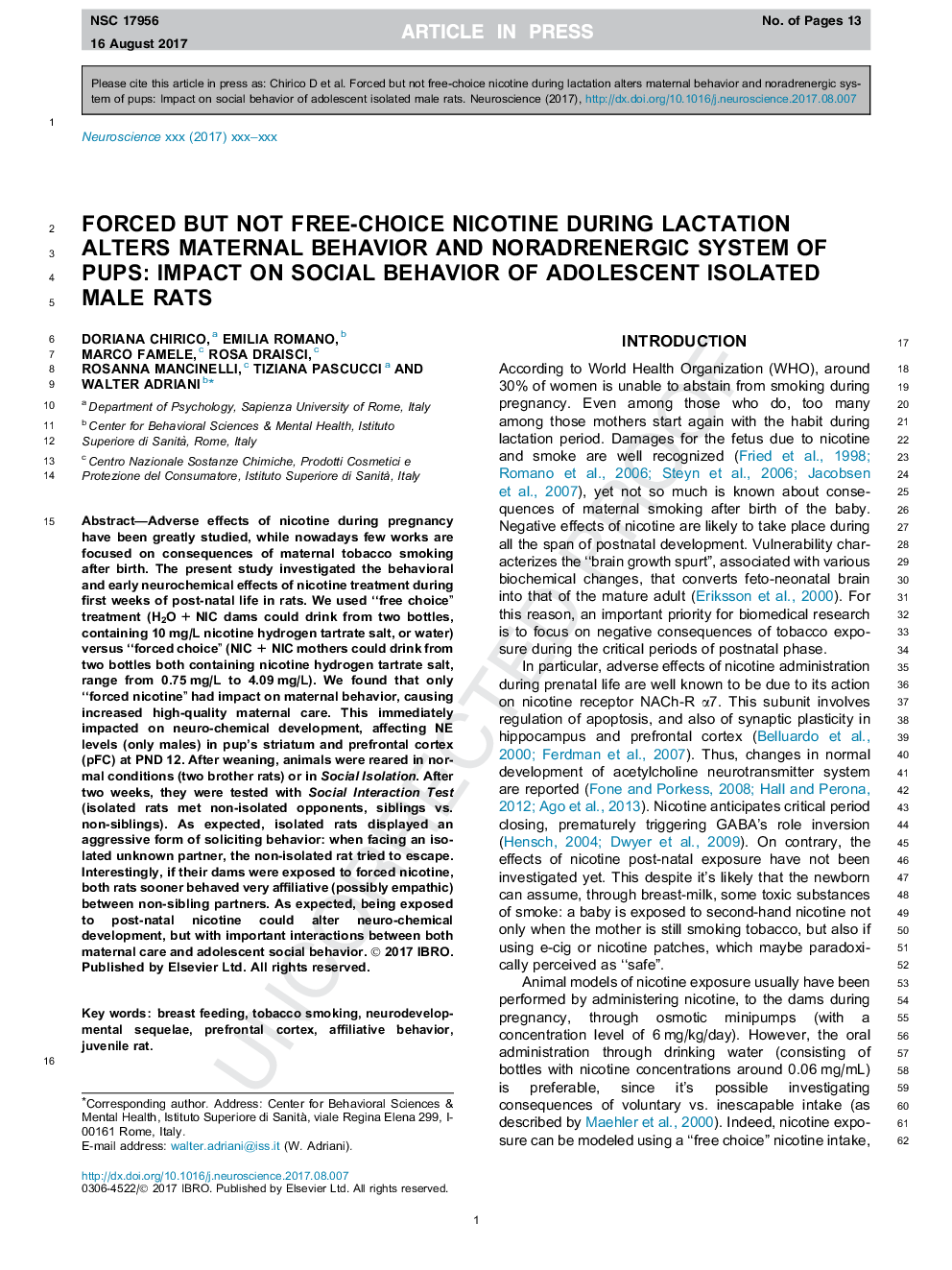| Article ID | Journal | Published Year | Pages | File Type |
|---|---|---|---|---|
| 5737384 | Neuroscience | 2017 | 13 Pages |
Abstract
Adverse effects of nicotine during pregnancy have been greatly studied, while nowadays few works are focused on consequences of maternal tobacco smoking after birth. The present study investigated the behavioral and early neurochemical effects of nicotine treatment during first weeks of post-natal life in rats. We used “free choice” treatment (H2OÂ +Â NIC dams could drink from two bottles, containing 10Â mg/L nicotine hydrogen tartrate salt, or water) versus “forced choice” (NICÂ +Â NIC mothers could drink from two bottles both containing nicotine hydrogen tartrate salt, range from 0.75Â mg/L to 4.09Â mg/L). We found that only “forced nicotine” had impact on maternal behavior, causing increased high-quality maternal care. This immediately impacted on neuro-chemical development, affecting NE levels (only males) in pup's striatum and prefrontal cortex (pFC) at PND 12. After weaning, animals were reared in normal conditions (two brother rats) or in Social Isolation. After two weeks, they were tested with Social Interaction Test (isolated rats met non-isolated opponents, siblings vs. non-siblings). As expected, isolated rats displayed an aggressive form of soliciting behavior: when facing an isolated unknown partner, the non-isolated rat tried to escape. Interestingly, if their dams were exposed to forced nicotine, both rats sooner behaved very affiliative (possibly empathic) between non-sibling partners. As expected, being exposed to post-natal nicotine could alter neuro-chemical development, but with important interactions between both maternal care and adolescent social behavior.
Related Topics
Life Sciences
Neuroscience
Neuroscience (General)
Authors
Doriana Chirico, Emilia Romano, Marco Famele, Rosa Draisci, Rosanna Mancinelli, Tiziana Pascucci, Walter Adriani,
